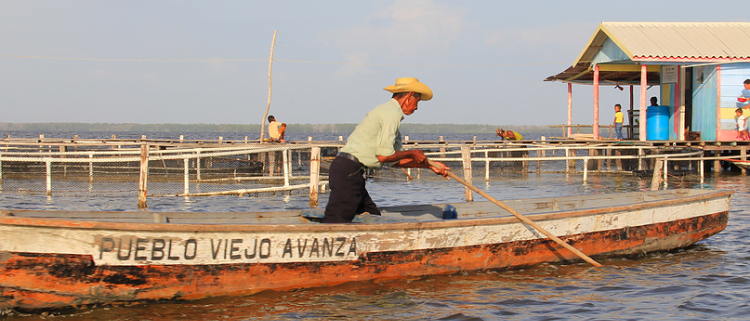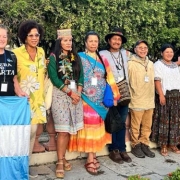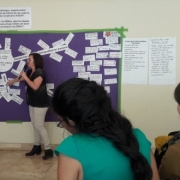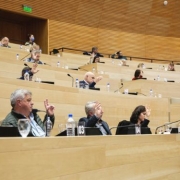Amicus curiae in the process of guardianship of the Great Marsh of Santa Marta (Colombia)
“Below, we offer a google translate version of the original article in Spanish. This translation may not be accurate but serves as a general presentation of the article. For more accurate information, please switch to the Spanish version of the website. In addition, feel free to directly contact in English the person mentioned at the bottom of this article with regards to this topic”
We made a presentation before the Constitutional Court of Colombia to bring to the court legal arguments about the obligation of the state of the protection of the Great Marsh of Santa Marta. This Ciénaga is a deltaic system of wetlands located to the north of Colombia and is considered one of the most productive ecosystems of the Caribbean for its important hydrological and ecological characteristics. Despite their protected status, the Ciénaga and the fishermen who inhabit it have suffered for years the significant decrease in freshwater that feeds the ecoregion and the inadequate handling of soils and water basins. The deterioration of the Ciénaga is due to a structural crisis that has not been properly addressed by the different entities with competence in the area.
Faced with violations of fundamental rights, environmental degradation and the inaction of the competent authorities, on November 10, 2016, two inhabitants of the Palafitic peoples who live in the Ciénaga filed a protection action in coordination with Dejusticia. The action was filed against 26 public entities of the Colombian national and local order, as well as against private companies. The guardianship action focuses on three issues. The first of these consists of the excessive use of the water sources and the lands of the swamp by the agroindustry and the omission in the duty of control by the authorities. They have built dykes, dried up terrain, diverted rivers, but the response of the authorities has been insufficient. The second, addresses the lack of proper maintenance and dredging of rivers and streams that feed freshwater to the marsh. Although millions of contracts have been signed to carry out these activities, few results are visible. Finally, the tutelage warns about the infrastructure projects that are planned to be built on the ecoregion.
The 25 of November of 2016 the guardianship was admitted, the judge of first instance denied the action alleging its improbency. It was considered that, although the great deterioration of the Cienaga was evident, this situation had been attended through a popular action previously promoted by another citizen. This decision was contested and the ruling was confirmed in second instance on February 16, 2017 by the Civil and Agrarian Cassation Chamber of the Supreme Court of Justice of Colombia. In April of this year the case reaches the Constitutional Court of Colombia. In this instance we present an amicus curiae (Latin expression that refers to a friend of the court or friend of the court). The latter is a presentation made by a third party outside the litigation, where they voluntarily offer legal and / or technical arguments to collaborate with the court before the sentence.
We consider that the case requires a structural response, in which the different entities with competence over the region participate and dialogue, always guaranteeing the participation of the communities. We believe that this is an ideal case to carry forward a model of dialogic justice in Colombia, to seek a structural solution to the problem, to hold public hearings where all parties involved have the possibility of being heard and that control is carried out active by the State. Similar statements have been made in cases in which we have been working as in the situation of contamination of the treatment plant for liquid effluent from the Bajo Grande WWTP or in the conflict over the operation of the Porta plant.
Wetlands are an important food, shelter and breeding site for a wide variety of wild species, and their protection and conservation are of particular importance. In addition, there are numerous international treaties that require active policies to protect the environment and the communities that live there. The Constitutional Court has the opportunity to establish clear guidelines regarding the protection of the human right to a healthy environment for a site of key environmental importance, as well as for vulnerable populations. In this sense, it is necessary that the Court and civil society follow up judiciously and permanently to the orders that are given in the sentence to verify the situation of the affected communities.
We support and promote the initiatives of participation of all the actors in the structural processes of modification of public policies.
Image credit
Dejusticia
More information
Constitutional Court has last word to save Big Marsh of Santa Marta | Dejusticia
Contact
Victoria Gerbaldo – victoriagerbaldo@fundeps.org
Juan Carballo – juanmcarballo@fundeps.org








